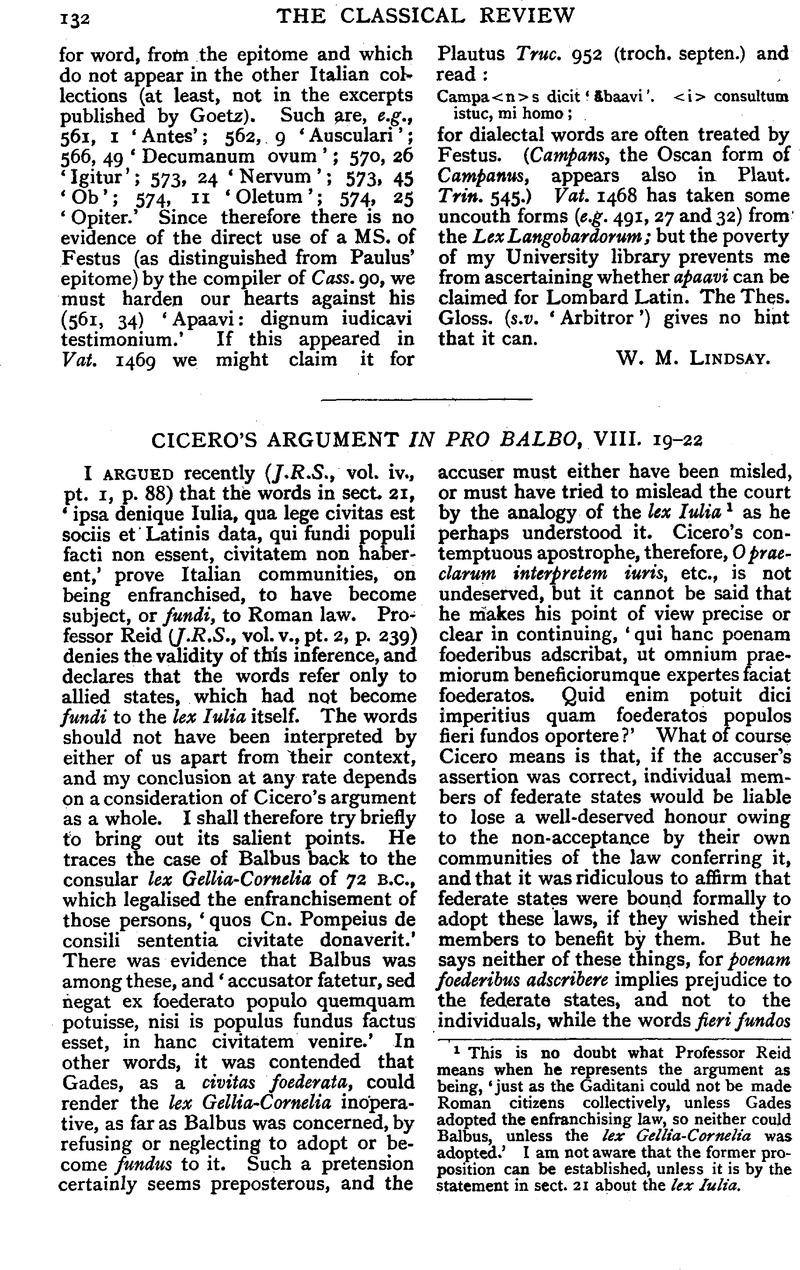No CrossRef data available.
Published online by Cambridge University Press: 27 October 2009

page 132 note 1 This is no doubt what Professor Reid means when he represents the argument as being, ‘just as the Gaditani could not be made Roman citizens collectively, unless Gades adopted the enfranchising law, so neither could Balbus, unless the lex Gellia-Cornelia was adopted.’ I am not aware that the former proposition can be established, unless it isby the statement in sect. 21 about the lex Iulia.
page 133 note 1 The civitas is not specified, but what else could fall under the vague commodo aliquo aut beneficio?
page 133 note 2 Professor Reid has a great objection to the view that enfranchised towns were ‘compelled’ adopt Roman law. He forgets that, if they became fundi to it, they were not compelled, since the essence of the process was its voluntary character.